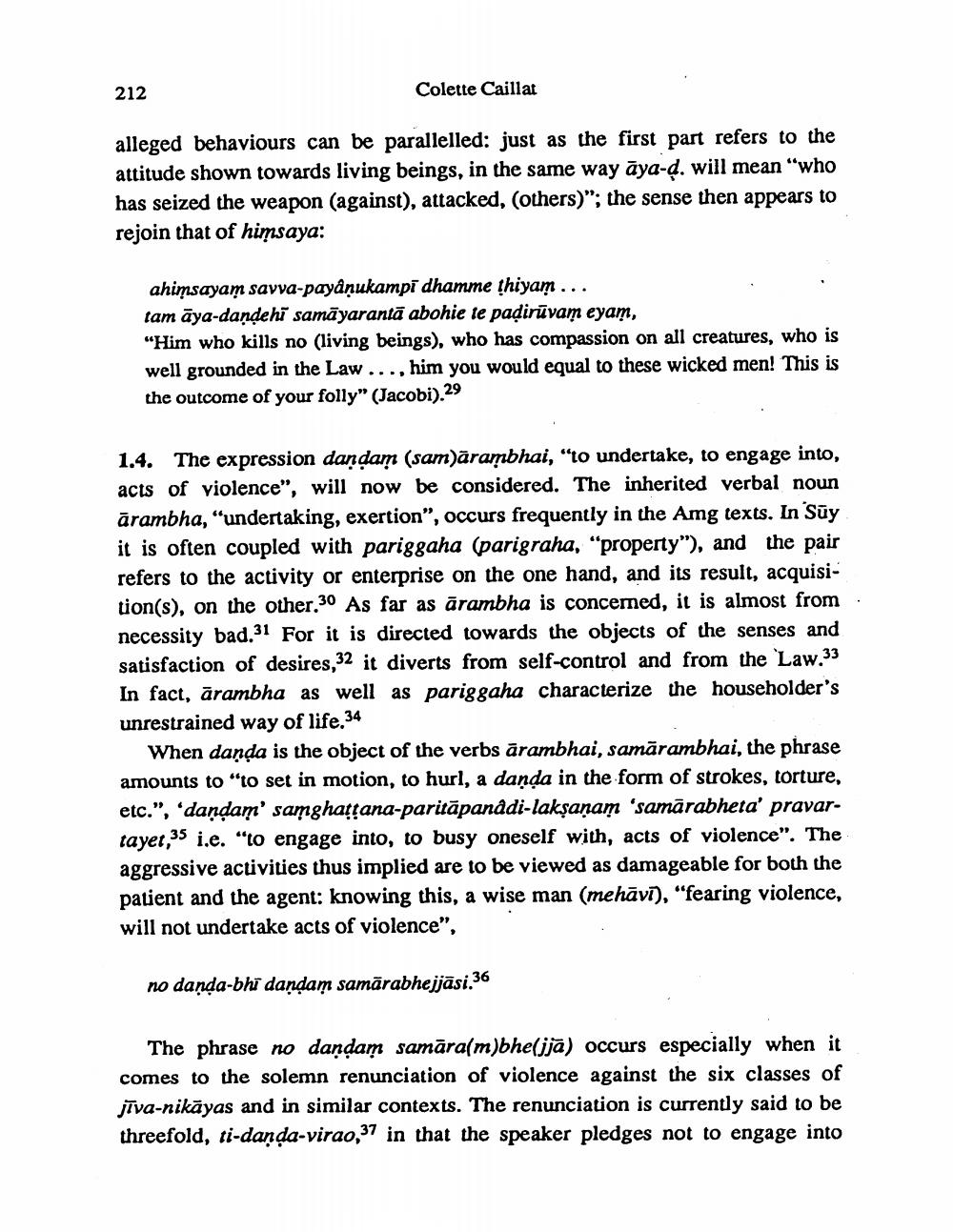________________
212
Colette Caillat
alleged behaviours can be parallelled: just as the first part refers to the attitude shown towards living beings, in the same way aya-d. will mean "who has seized the weapon (against), attacked, (others)"; the sense then appears to rejoin that of himsaya:
ahimsayam savva-payaņukampi dhamme thiyam... tam āya-dandehi samāyarantā abohie te padirūvam eyam, "Him who kills no (living beings), who has compassion on all creatures, who is well grounded in the Law ..., him you would equal to these wicked men! This is the outcome of your folly" (Jacobi).29
1.4. The expression dandam (sam)ārambhai, "to undertake, to engage into, acts of violence", will now be considered. The inherited verbal noun ārambha, “undertaking, exertion", occurs frequently in the Amg texts. In Sūy it is often coupled with pariggaha (parigraha, "property"), and the pair refers to the activity or enterprise on the one hand, and its result, acquisition(s), on the other.30 As far as ārambha is concerned, it is almost from necessity bad.31 For it is directed towards the objects of the senses and satisfaction of desires,32 it diverts from self-control and from the Law.33 In fact, ārambha as well as parig gaha characterize the householder's unrestrained way of life.34
When danda is the object of the verbs ārambhai, samārambhai, the phrase amounts to "to set in motion, to hurl, a danda in the form of strokes, torture, etc.", dandam' samghattana-paritāpanādi-laksanam 'samārabheta' pravartayet,35 i.e. "to engage into, to busy oneself with, acts of violence". The aggressive activities thus implied are to be viewed as damageable for both the patient and the agent: knowing this, a wise man (mehāvi), "fearing violence, will not undertake acts of violence",
no danda-bhi dandam samārabhejjāsi.36
The phrase no daņdam samāra(m)bhe(jjā) occurs especially when it comes to the solemn renunciation of violence against the six classes of jīva-nikāyas and in similar contexts. The renunciation is currently said to be threefold, ti-danda-virao, 37 in that the speaker pledges not to engage into




